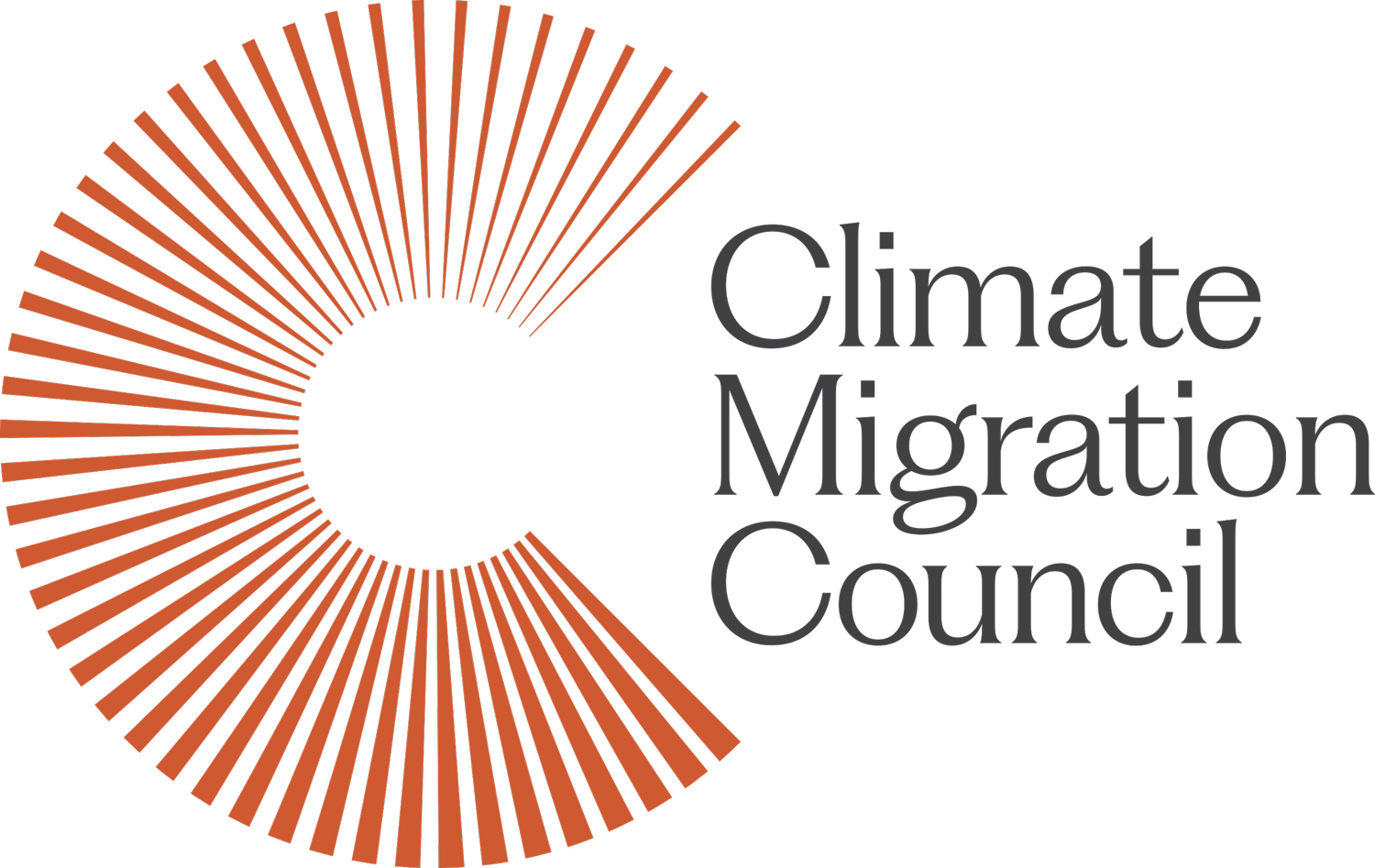REPORT: Driving Global Action on Climate Migration: Year One of the Climate Migration Council
One year ago, we launched the Climate Migration Council – a collection of elected officials, business leaders, academics, and advocates who share a commitment to putting people at the center of climate action. Until the Council’s founding, there was no advocacy movement on how to responsibly and humanely manage people who have been, and will be, displaced by the changing climate.
That changed with the formation of the Climate Migration Council, and now leaders from around the world are raising awareness of climate-driven migration and urging leaders to take global action that supports climate change mitigation and adaptation efforts with the ultimate goal of making the world a healthier place for people to live.
When the Council launched, its 43 founding members signed a declaration committing to hold leaders and multilateral organizations accountable to:
Adopt and finance locally-driven adaptation and resilience strategies to sudden-onset and slow-onset disasters, adverse effects of climate change, and environmental degradation, that can address the root causes of climate-induced migration.
Address the vulnerabilities of persons affected by sudden-onset and slow-onset natural disasters by partnering with all levels of government to ensure they have access to humanitarian assistance that meets their essential needs with full respect for their rights wherever they are, and by promoting sustainable outcomes.
Encourage local, state, regional, and international institutions to develop and partner in the implementation of coherent strategies and to propose norms and templates that support national and regional efforts to ensure the safety of climate-displaced individuals.
Expand and diversify the availability of pathways for safe, orderly, and regular migration.
One year later, the Council stands at 74 members strong, and we’re only getting stronger. We’ve recruited new members like Chobani CEO Hamdi Ulukaya, EDF President Fred Krupp, Director General of International Organizations for Migration Amy Pope, former Denver Mayor Michael B. Hancock, La Palma Chalatenango, El Salvador Mayor Maribel Escobar, Executive Director of the National Partnership for New Americans Nicole Melaku, Mercy Corps CEO Tjada D'Oyen McKenna, and more, contributing to some of the world’s most important annual conferences like Climate Week NYC, Aspen Ideas: Climate, Cities Summit of the Americas, and COP27, influencing the conversation surrounding climate-driven migration in myriad ways.
At Climate Week NYC last year, the Council hosted an essential round table discussion on climate migration with our members. This was our first opportunity to bring members together to focus on the scope, scale, and solutions to the challenges of reframing migration as an adaptive solution to the climate crisis. At COP27, Managing Director of Immigration at Emerson Collective Marshall Fitz, who serves as an advisor to the Council, hosted a panel discussion on how cities can prepare for climate migration, featuring CMC member and then-Oakland Mayor Libby Schaaf. At Aspen Ideas: Climate, several of our members spoke on panels – CMC member Manish Bapna, president and CEO of the National Resources Defense Council, discussed what we need to do to confront climate injustice. At the inaugural Cities Summit of the Americas in Denver this past April, the Climate Migration Council co-hosted the Cities At the Nexus of Climate Change, Migration, and Displacement event in addition to speaking at the closing plenary session, Human Mobility in the Americas. We collaborated with the Inside Out Project to photograph young leaders who attended the Cities Summit of the Americas for Youth as they work to improve their communities in light of climate change challenges.
These engagements helped grow the Council and the conversation around climate-driven migration. Take a look at just a small sampling of the coverage the CMC has received in part due to these convenings:
The Issue Driving Our Work
While the climate crisis has made headlines this summer and come to the forefront of the world’s collective consciousness, we are still far behind where we need to be in the fight to put solutions in place. And the magnitude of this crisis is only going to increase. The vast majority of Western economies still rely heavily on fossil fuels, and our global agricultural practices across sectors remain inelastic to the demand of more climate-conscious consumers.
This year, leaders have released key reports including the IPCC Report, the ODNI Annual Threat Assessment, and the WEF Global Risk Report, emphasizing the need to take bold action on climate change. These reports serve as a reminder of how migration can be understood as an adaptive solution to climate change.
The IPCC Report states unequivocally that human activities, principally through emissions of greenhouse gasses, have caused global warming and that human-caused climate change is already affecting many weather and climate extremes in every region across the globe. The report makes the additional point that vulnerable communities who have historically contributed the least to current climate change are disproportionately affected. The ODNI Annual Threat Assessment emphasizes that shared global challenges, including climate change and human and health security, are converging to create unprecedented national security threats in the coming year and beyond. The WEF Global Risk Report made clear that the climate crisis is dire, and “large-scale involuntary migration” is likely to increase due to inaction on climate change and other geopolitical and social factors – many of which are also partially due to a changing climate.
The accelerating effects of climate change are placing more of the world’s population, particularly in low- and middle-income countries, under threat from extreme weather, food insecurity, political turmoil, and humanitarian disasters. Climate-related disasters in low-income countries will deepen economic challenges, raise the risk of inter-communal conflict over scarce resources, and increase the need for humanitarian and financial assistance.
The Climate Migration Council recognizes that climate change is more than just a threat – it is upending the lives of millions of people today. As climate change radically shifts how and where we live, migration as adaptation may be one solution to a changing world.
Climate Migration Council Explainer
To prompt a deeper understanding of some of the key concepts, numbers, and framings that we propose are critical regarding the interrelationship between the climate crisis and movement of people within and across borders, the Climate Migration Council released this explainer to be of use to CMC members, policymakers, media, and other stakeholders.
Download PDFLeaders Are Taking Notice
Of course, no amount of collaboration, organization, and support becomes real without action. In the past year, the Climate Migration Council’s initiatives and advocacy work combined with trailblazing individual efforts from our members has led to meaningful progress as leaders are taking notice of our goals and embracing them as part of their efforts to create a healthier and more liveable world.
The city of Barranquilla, Colombia, for example, is achieving this aim by offering public services that provide migrants with income-generating tools and training, while piloting long-term solutions to improve climate resilience in high-risk hotspots prone to flooding and landslides. Thanks to this and the trailblazing leadership of CMC member, Mayor Jaime Pumarejo Heins, Barranquilla has become a regional example of the positive effects of migration by successfully integrating migrants into its social, cultural, and economic fabric.
Bristol, UK is a city with large migrant communities close to the North Atlantic. Since becoming Mayor in 2016, CMC member Marvin Rees has been on a mission to position Bristol as a leader in resilience, climate leadership, and migration policy. Integrating green infrastructure with the natural environment has allowed Rees and Bristol’s leadership to provide multiple benefits such as improved air quality, improved health and wellbeing, and reduced impacts of flooding, climate change, and environmental degradation, and more. Meanwhile, new pressures are expected on the city due to further population growth and migration. To respond, Bristol is piloting a range of educational and vocational programs aimed at nurturing a new generation of workers. As a flagship climate initiative, Bristol’s development of Castle Park Energy Centre, the UK's largest water-source heat pump, will provide zero-emission heat and hot water to stores in Bristol city center and, before long, to 200 new residential buildings as well.
The ripple effects of our mission have even reached branches of some of the most influential federal governments in the world, evidenced most recently by the Biden Administration’s newest national intelligence strategy document, which states that “cross-border challenges [none larger than climate change] are increasingly interacting with and compounding traditional state-based political, economic, and security challenges with unexpected second consequences, from food and energy insecurity to irregular migration, and civil unrest to conflict.”
While these efforts mark tangible progress in climate resilience adaptation, we know this is only the beginning. There is so much more work to be done in the coming years as the need for action on climate change and migration continues to grow. Luckily, we have faith in our members’ abilities to transform our mission into a reality. Through the strength of our membership, we will continue to engage at all levels of government to push for climate resilience and humane migration policies that take the unprecedented displacing force that is climate change into full consideration.
Our Members Make Us
As a diverse group of leaders from across the globe whose work encapsulates everything from politics to academics to business on both national and sub-national levels, Climate Migration Council members bring a multitude of perspectives and represent stakeholders from all walks of life. The diversity in these perspectives allows us to develop unprecedented action toward a healthier climate while putting those who are most affected by our current crisis at the center of all that we do. What follows is a series of member spotlights to help you get a sense of the kind of leaders that make up the Climate Migration Council and help us sow the seeds of a more liveable future each and every day.

Hamdi Ulukaya
This year, we welcomed Chobani CEO Hamdi Ulukaya to the Council. Ulukaya has become a leading voice in the movement to hire refugees, having discovered through his own experience that, “the minute a refugee gets a job is the minute they stop being a refugee.” That inspired him to start the Tent Partnership for Refugees in 2016, a network of over 300 major companies committed to economically integrating refugees through hiring, training, and mentorship opportunities around the world. On the council, Ulukaya adds his unique perspective to the search for adaptive solutions to climate change that integrate local stakeholder know-how with scalable design, and we are looking forward to continuing to welcome business leaders to help further diversify our ranks in the future.
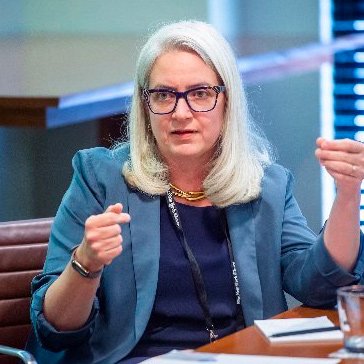
Erin Sikorsky
Climate Migration Council Founding Member Erin Sikorsky is the Director of the Center for Climate and Security, and her contributions to establishing the link between climate change, migration, and national security are unimpeachable. Sikorsky is a consistent ally in the fight for a safer and healthier world. When she’s not publishing thought leadership pieces on salient topics in climate and security, she’s speaking at panels and round table events, educating the public, or working diligently to lead the Center for Climate and Security.
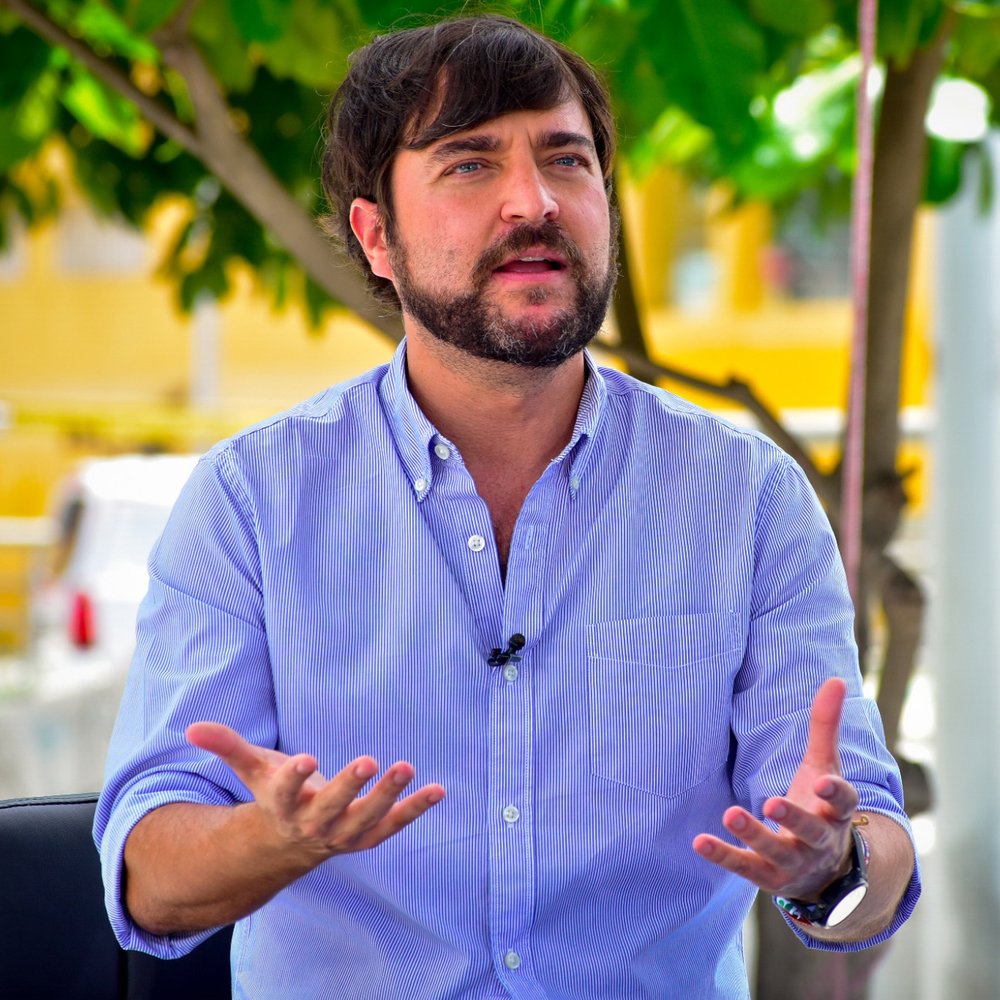
Jaime Pumarejo Heins
Jaime Pumarejo Heins is the Mayor of the City of Barranquilla, Colombia. As Mayor, he has launched Barranquilla on a path to become Colombia’s first “BiodiverCity,” spearheading green and blue infrastructure projects that aim to connect citizens with nature in an urban context. He is one of the founding members of Latin America’s BiodiverCities network, with over 100 cities advocating for the protection of biodiversity in urban areas. His work to make his city more resilient to climate change dovetails with his passion for helping migrants find a better life. Many of the same infrastructure improvements Pumarejo Heins has introduced through the BiodiverCities network has made his city a more welcoming and liveable place for those who have been forced from their homes by the consequences of climate change. Pumajo Heins’ work embodies the intersectionality of the Climate Migration Council’s driving goal and is a positive case study for the way that sub-national leaders can create life-altering change for thousands of people. So much so that Bloomberg CityLab interviewed Pumarejo on climate migration in Latin America for his expert perspective on fostering resilience in changing times.

Timothy J. Greene
Timothy J. Greene, Sr. is the Chairman of the Makah Tribal Council of Neah Bay, Washington, located at the northwest tip of the Olympic Peninsula. Chairman Greene is in his tenth year on the Tribal Council, and his fourth year as Chairman. The Makah Tribe has a strong record of stewardship and engagement on ocean policy and fisheries management. Chairman Greene has served as Vice Co-Chair for the Governance Coordinating Committee under President Obama’s National Ocean Policy. The Makah Tribe has long been regional leaders on oil spill prevention and response, vessel traffic safety, air quality and environmental health, ecosystem management, and habitat restoration. The impacts of climate change on indigenous communities and Treaty Tribes like Makah present unique risks to their rights and resources that are vital to address. Colorado Politics published a piece announcing Greene as a Climate Migration Council member ahead of the inaugural Cities Summit of the Americas alongside former Denver Mayor Michael B. Hancock.
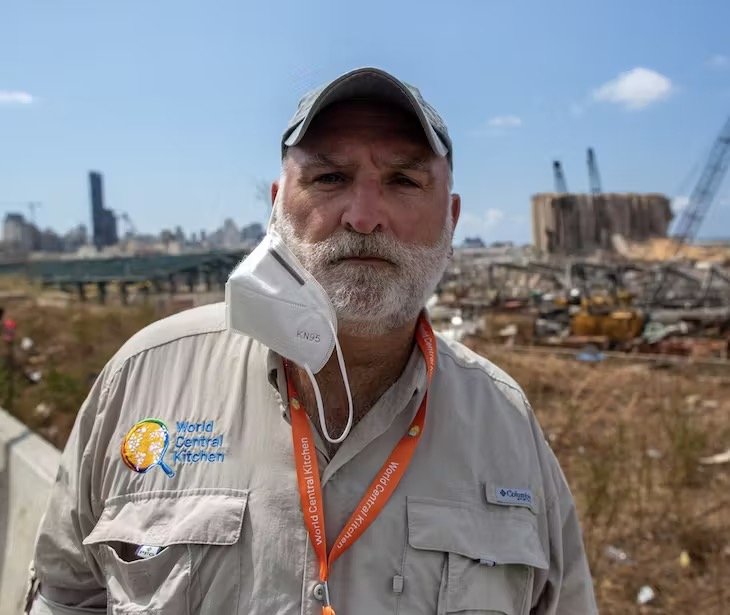
José Andrés
Over the course of his career as a chef and restaurateur, José Andrés has seen how cooks – and the power of food – can change the world. As the Founder and Chief Feeding Officer of World Central Kitchen, Andrés has been helping feed victims of natural disasters, man-made crises, and humanitarian emergencies on a massive scale around the world for almost fifteen years. Through this work, Andrés has witnessed first-hand the crisis of climate-triggered hunger around the world. As the Climate Migration Council continues to push for world leaders to pursue long-term policies to address the climate crisis, Andrés and World Center Kitchen have committed to raising and spending $1 billion to immediately help families forced from their homes by the consequences of climate change.
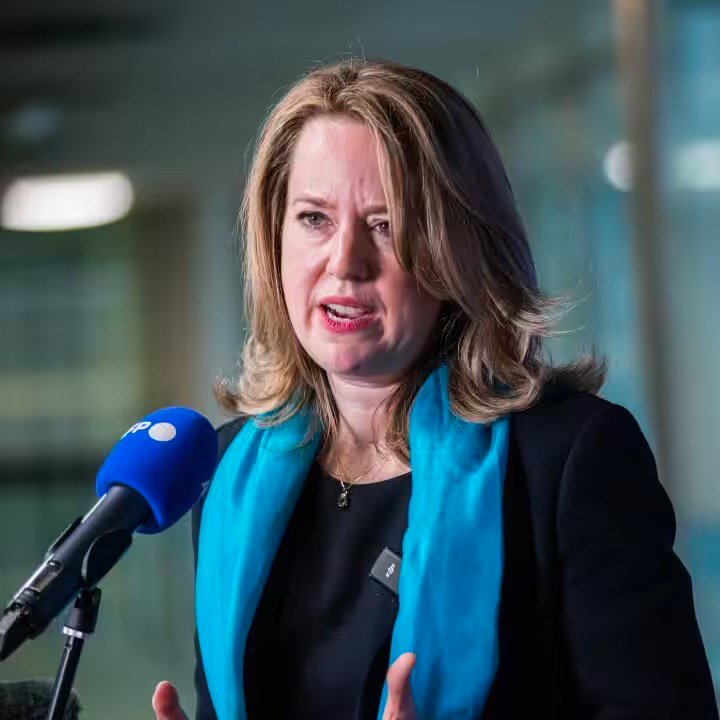
Amy Pope
Amy Pope is the Director General-Elect for International Organizations for Migration (IOM). She is a transformative leader in international migration policy with demonstrated experience in improving complex organizations. She has extensive technical knowledge of migration challenges that span the breadth of IOM’s engagement, experience managing large-scale budgets and operations, and is an innovative and strategic thinker with a proven ability to translate policies into actionable steps. As the first woman to lead IOM, Pope’s uncanny ability to transform ideas into action will help drive the Council forward while centering migration in mainstream climate discourse.
What’s Next
We are investing in our future by driving even harder toward our central aim of reframing migration as an adaptive solution to climate change, and that includes needing more investments in researching the issue of climate-driven migration. In service of this goal, we are looking forward to having a presence at New York City’s Climate Week, a marquee gathering of changemakers taking place now through September 24. We will also be at COP 28 in Dubai in November, connecting with other members and changemakers, and urging leaders to prioritize climate-driven migration at COP and beyond.
If you want to get in touch with the Climate Migration Council, please reach out to press@climatemigrationcouncil.org, or visit ClimateMigrationCouncil.org.
